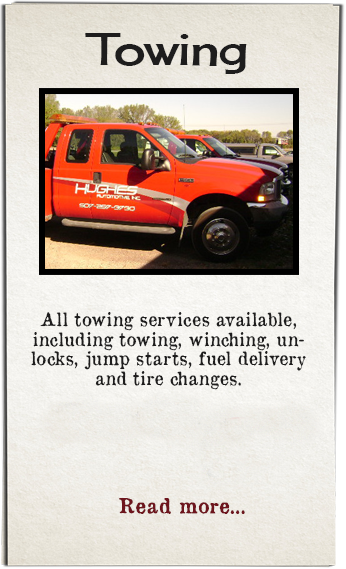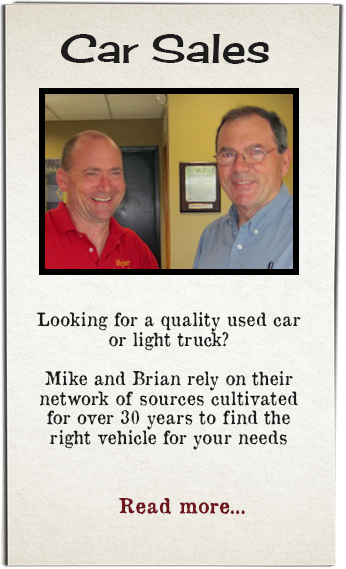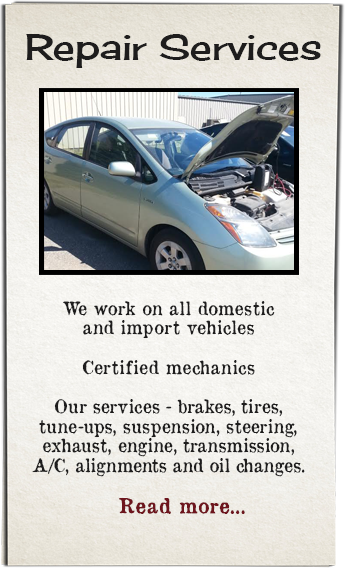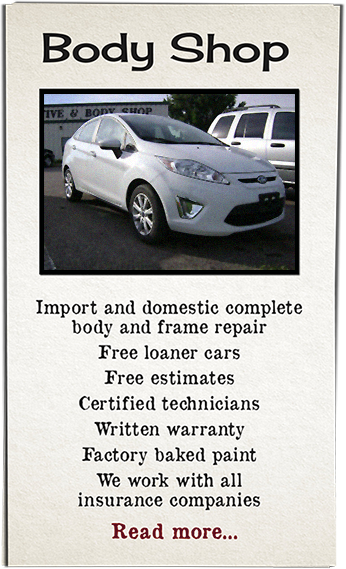Safety should always be an important element of your car care. So even if you don’t care about how your car looks, you should practice preventive maintenance to protect yourself — and other Eagle Lake motorists — on the road. And good safety starts with good brakes.
Brakes need a regular inspection. There are essential parts that wear out or wear down, and it’s best to replace them before you have issues.
Of course, if you are having trouble with your brakes, NOW is the time to fix them. If your brake warning light is on, that’s a good sign that you need your brakes checked. Eagle Lake motorists can also tell something is wrong with their brakes by the feel of the pedal or unusual sounds while braking. If the brake pedal is low, feels spongy when you press it or is hard to push, that indicates a problem with your brakes. If you hear squealing, grinding or clunking noises when you brake, that can also indicate troubles. If vibrations accompany braking, then it is critical to get your brakes checked.
Brakes come in two basic types. With disk brakes, a rotor is attached to the axle of the vehicle. Padded calipers straddle the rotor, which close when the brakes are applied. The resulting friction causes the rotor — and the axle — to stop turning. With drum brakes, brake pads (also called shoes) press against the inside of a drum to create friction and stop the drum, and hence the sedan’s wheels, from turning.
When Hughes Automotive Inc services your brake system, your honest service professional checks all of the brake pads for wear. If they are too thin, they need to be replaced. This is an inexpensive repair at Hughes Automotive Inc compared to what procrastination will cost you. If pads wear away completely, then the rotors and drums can be damaged. They will have to be either resurfaced or replaced, and that can be pricey. But if your sedan brake pads are worn out, then your brakes are compromised and your stopping power is greatly reduced. You could easily wind up in an accident.
Brake pads come in several different grades such as regular, metallic and ceramic. The higher grades are more costly in Eagle Lake, but they also work better. MN drivers who want better and smoother braking, should consider upgrading. However, Mankato drivers should NEVER use a brake pad that is lower than your car maker’s recommendation.
After you your brake pads are checked at Hughes Automotive Inc, it’s critical to have your brake fluid checked. This is a critical element in your brake system. When you press your brake pedal, you are compressing the brake fluid, creating pressure that activates the brake pads. If your fluid pressure is low, it will reduce your braking power. The pads just won’t be able to press hard enough against the rotor or drum to stop your sedan. Just as with worn pads, insufficient brake fluid can lead to a dangerous and expensive accident in Eagle Lake.
Water can build up in your brake fluid, which can cause harmful corrosion in your braking system. Eventually this can cause your brake fluid to leak. So Eagle Lake motorists should also change their brake fluid periodically. Your sedan owner’s manual will have guidelines on how often it should be replaced or ask a honest service specialist at Hughes Automotive Inc. We have been servicing brake systems in Eagle Lake for 36 years.
Remember, Mankato folks, safety first. It’s vital auto advice for all Eagle Lake auto owners on the road. You’re not just protecting others; you’re protecting yourself.





